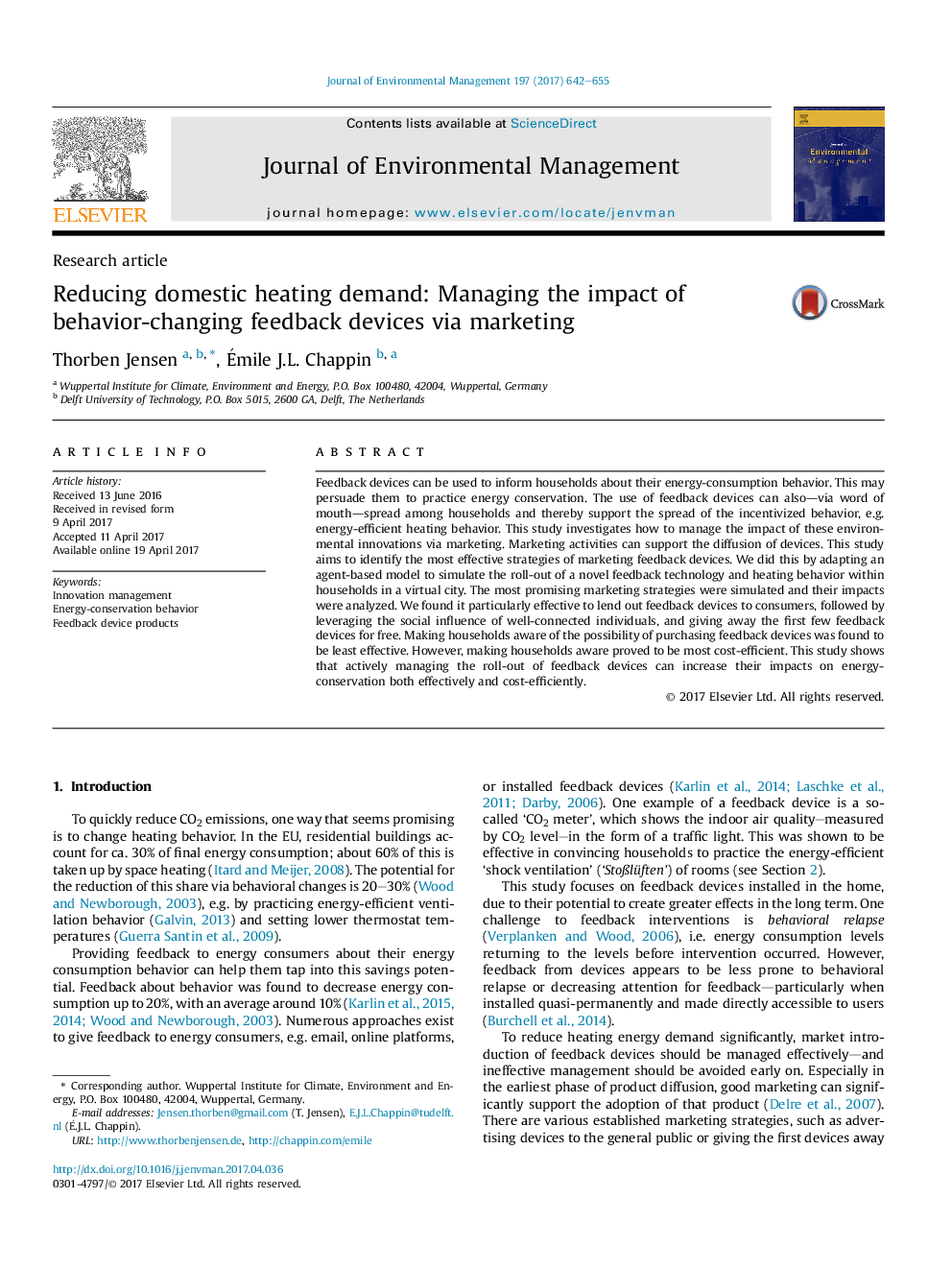ترجمه فارسی عنوان مقاله
کاهش تقاضای گرمایش داخلی: مدیریت تأثیرات بازخوردهای رفتار در حال تغییر از طریق بازاریابی
عنوان انگلیسی
Reducing domestic heating demand: Managing the impact of behavior-changing feedback devices via marketing
| کد مقاله | سال انتشار | تعداد صفحات مقاله انگلیسی |
|---|---|---|
| 85830 | 2017 | 14 صفحه PDF |
منبع

Publisher : Elsevier - Science Direct (الزویر - ساینس دایرکت)
Journal : Journal of Environmental Management, Volume 197, 15 July 2017, Pages 642-655
ترجمه کلمات کلیدی
مدیریت نوآوری، رفتار حفاظت از انرژی، محصولات دستگاه بازخورد،
کلمات کلیدی انگلیسی
Innovation management; Energy-conservation behavior; Feedback device products;

